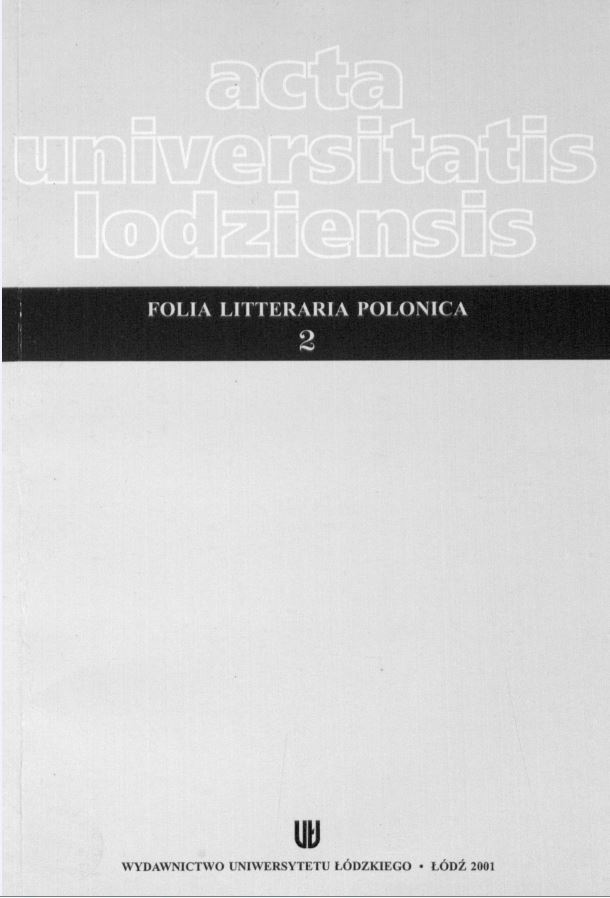Wisławy Szymborskiej przypadki
DOI:
https://doi.org/10.18778/1505-9057.02.07Abstrakt
In her books Szymborska touches many diverte subjects but it is easy to notice her predilection for some topics with which she deals in her successive books of poems.
Unplanned haphazard happenings, their category and their role in the life of the man, in reality and in the world, are her main preocupations.
As our century has witnessed a breakthrough in indeterminacy due to surprising discoveries in natural sciences the question of haphazard happenings has become more important and intriguing. It has a great fascination for artistics.
W. Szymborska giving so much attention to the category of haphazards familiorizes the man with the reality in dissaway that can result in a chaos. In her poems influenced by natural sciences the category of haphazards is not only a leitmotif but also a fascinating enigma. For her casualness and situations resulting from chance are the main mechanism that controls the course of events.
In her many poems she focuses on the mystery of haphazards and their inevitability. Her poem Wszelki wypadek (It Might Have Happened) is, perhaps, her first work where she doesn’t deal but with the role of haphazards played in the life of the man. She directs her attention to situations happening in unplanned or disorderly manner thus making possible to save one’s life.
Haphazards not only can save the man’s life but they also determine the angle from which he sees the world where the haphazard is ruling. Haphazards can influence all the spheres that are important for the man. The world full of haphazards pictured in the poem is mosaic-like – a number of happenings, various possibilities for the course of particular events. The language describing those events matches the structure of composition. What is happening in the sphere of the language it is precisely reflected in the meaning. Her symmetric and precise structure of the poem results in a scheme called “the tree of decision” transformed by Szymborska in a “tree of possibilities” .
In the poem Terrorysta, on patrzy (He is Watching, the Terrorist) the poetess tries to paint the ruthless mechanism of a haphazard meaning the life of people. A terrorist, after having planted a bomb in a bar, is watching people coming in and out of the bar. The whole poem is a silent question about the aim and the sense of the events impossible to understand for people who are involved in them.
Szymborska’s latest book of poems (Koniec i początek, The End And The Beginning) confirms her strong interest in haphazards (especially in the poem Seans). The title of the poem is a metaphor between the casualness and the man. Again one focuses on the surprised man who cannot understand the sense of the events happening with his participation. The spectators are surprised because they don’t know the way the illusionist plays his tricks.
Szymborska’s man is dependent on something over which he has no influence. He is the passive protagonist of events he takes part in. At the same time the category of haphazard stresses the joyful aspect of human existence. For Szymborska both haphazards are important: the one that threatens the man’s life and the other that makes possible to save his life. So the pessimism in the poem It Might Have Happened is balanced by optimism. The poetess, inspired by everyday world and new achievements in sciences, pictures a world where the haphazard and invitability coexist and integrate and interrelate. Szymborska, in her poetry, surmounts the contradiction between those categories.
Pobrania
Pobrania
Opublikowane
Jak cytować
Numer
Dział
Licencja

Utwór dostępny jest na licencji Creative Commons Uznanie autorstwa – Użycie niekomercyjne – Bez utworów zależnych 4.0 Międzynarodowe.











